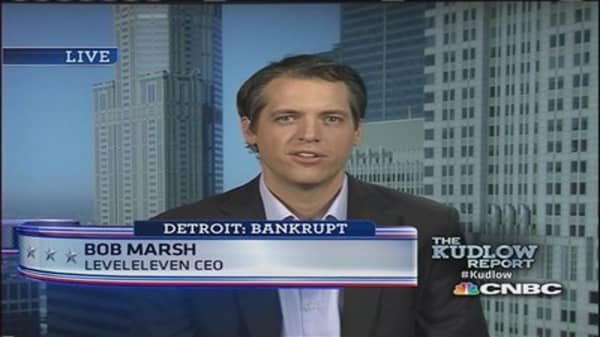Detroit's leaders have set an important precedent in siding with residents rather than unions and bondholders in their decision to declare the city bankrupt last week, Meredith Whitney wrote in the Financial Times.
As part of Detroit's restructuring plan, Emergency Manager Kevyn Orr wants to treat general obligation (GO) bonds as unsecured debt. If that request is approved by the bankruptcy judge, the $3.7 trillion muni-bond market could be turned on its head, as would the long-held assumption that GO bonds represent a relatively risk-free investment.
(Read More: How your city might pay for Detroit's money mess)
The root of the problem of struggling municipal finances is local lawmakers being allowed to break promises to voters and run up large tabs for future taxpayers, Whitney a banking analyst at Meredith Whitney Advisory Group LLC said in an opinion piece in the paper.
"As jarring as the reality may be to accept, Detroit's decision last week to declare bankruptcy should not be regarded as a one-off in the U.S. municipal market." she said.
"There are five more towns like Detroit in Michigan alone. There are many more municipalities across the country in similar positions."
(Read More: Michigan Appeals Court halts challenges to Detroit's bankruptcy filing)
Detroit finally filed for bankruptcy on July 18 after years of a slow decline in its population and its once famous auto manufacturing industry. But the legal battle hasn't finished yet. The outcome could inflict more pain on Detroit's already-beleaguered residents, businesses, creditors, investors and city workers, whose pension plans may now be invalidated.
Three lawsuits were filed by city workers, retirees and pension funds earlier this month on worries that an anticipated bankruptcy petition by Detroit would lead to cuts in retirement benefits, with a federal judge on Wednesday expected to rule on whether U.S. law trumps Michigan's constitutional protections.
(Read More: Detroit becomes largest US city to file for bankruptcy)
These promised pensions and other benefits for public employees, which have strong legal protection, need to be questioned, according to Whitney.





